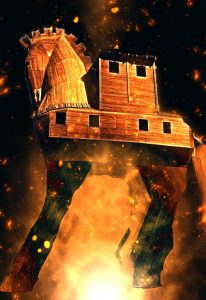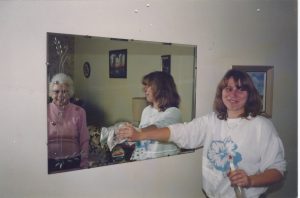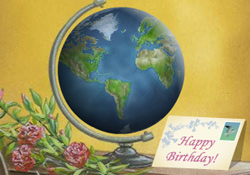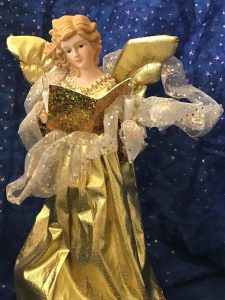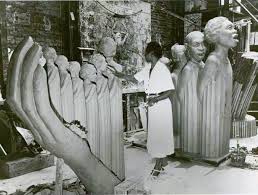
Lift ev’ry voice and sing
‘Til earth and heaven ring
Ring with the harmonies of Liberty
Let our rejoicing rise
High as the list’ning skies . . .
Rosamond Johnson and James Weldon Johnson
Augusta Fells Savage has a fascinating life story of perseverance in her art, and she crafted “The Harp,” for the 1939 New York World’s Fair. This sculpture includes twelve singing African-American youth in graduated heights as its strings. And I love this photo showing her work in progress, as shapes emerge from the clay.
Our children emerge into their own distinct personalities, too, on their way to adulthood. Today a little girl who once attended our church Sunday School is getting married, and I’m feeling nostalgic in recalling how we would assemble each Sunday morning in a circle with these children who are now young adults.
It became clear that it was easier to participate at Christmas or graduation when the children were comfortable singing together weekly. They loved music, and I looked forward to being in our singing circle on Sunday mornings. A workshop entitled “Sing with Me, Please” offered suggestions: “make sure the melody line is clear, sing the first time without accompaniment, learn parts of the song or only one verse first. Start with high energy songs, have the kids write their own lyrics.” We were fortunate to have an excellent accompanist in our young piano player, Ben.
When you work with children, you feel as if you are preparing them for a journey. It was our prayer that the songs and lessons that they learned would be of help down the road.
When put to music, truths remain accessible for years. In old age, seniors recall the songs they memorized decades ago. We never can know when these seeds early planted in mind and heart become a comfort and blessing in time of need.
In these children, we were privileged to witness the creative process by the God who, like a sculptor, shapes lives. Each one was unique in gifts and talents, each has the potential to live a life of praise. We wish each one much joy.
